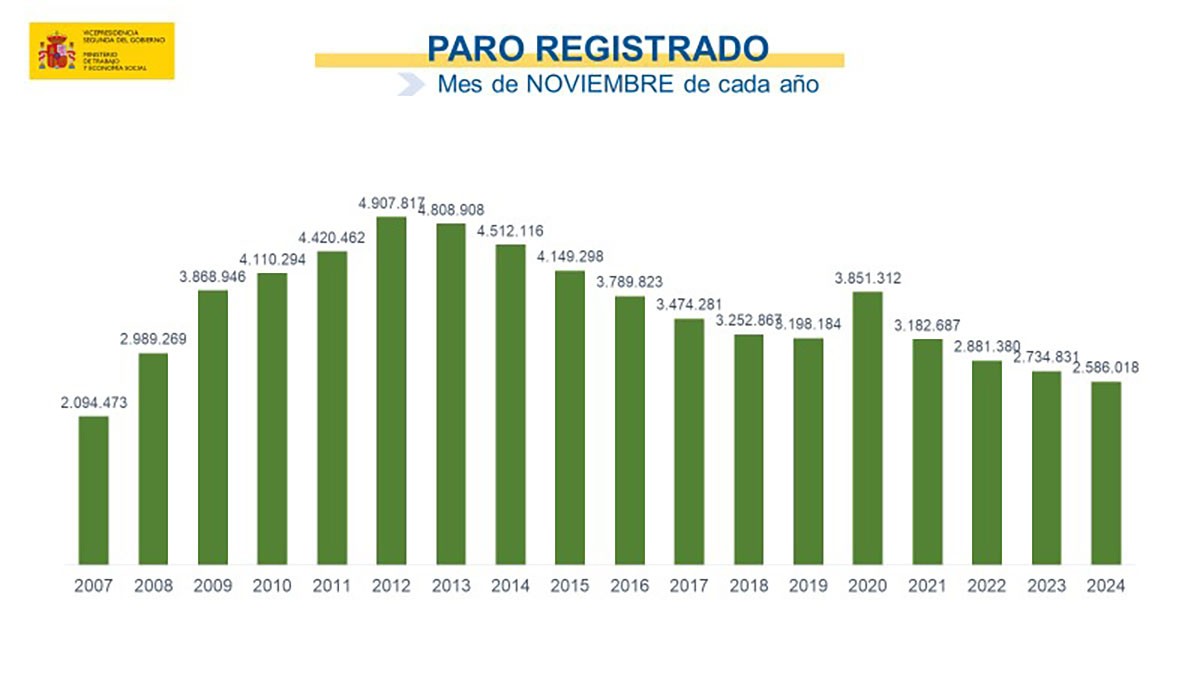
Spain's unemployment rate has fallen to its lowest November level since 2007, with just 2.59 million people registered as jobless, according to the latest data from the Ministry of Social Security.
The Spanish job market defies expectations despite November typically being a challenging month due to the end of the tourist season. Total employment exceeded 21.3 million people, representing a robust year-on-year growth of 2.39%.
While the hospitality sector experienced expected seasonal declines with over 118,000 job losses, other sectors helped offset this downturn. Education and trade sectors added more than 50,000 jobs combined, helping maintain overall employment stability.
The self-employment sector showed particular promise, with 746 new registrations in November. This growth was primarily driven by technology, communications, and professional services, indicating a shift toward more flexible work arrangements in the Spanish economy.
Gender disparities were evident in the latest figures, with women experiencing greater job losses than men. Female employment decreased by 21,440 positions, while male employment fell by 11,215. Women currently represent 47.4% of Spain's total workforce.
Recent labor reforms have begun showing positive results, with an increase in permanent contracts compared to temporary ones, though temporary agreements still account for over half of all new contracts.
The employment market remained resilient even in the face of challenging weather conditions. The DANA storm, which affected various regions including Valencia, had minimal impact on employment figures. Valencia actually registered an increase of 11,217 workers compared to the previous month.
As Spain approaches the holiday season, these encouraging employment figures suggest the country's job market continues to strengthen, despite global economic uncertainties and seasonal fluctuations in tourism-dependent sectors.